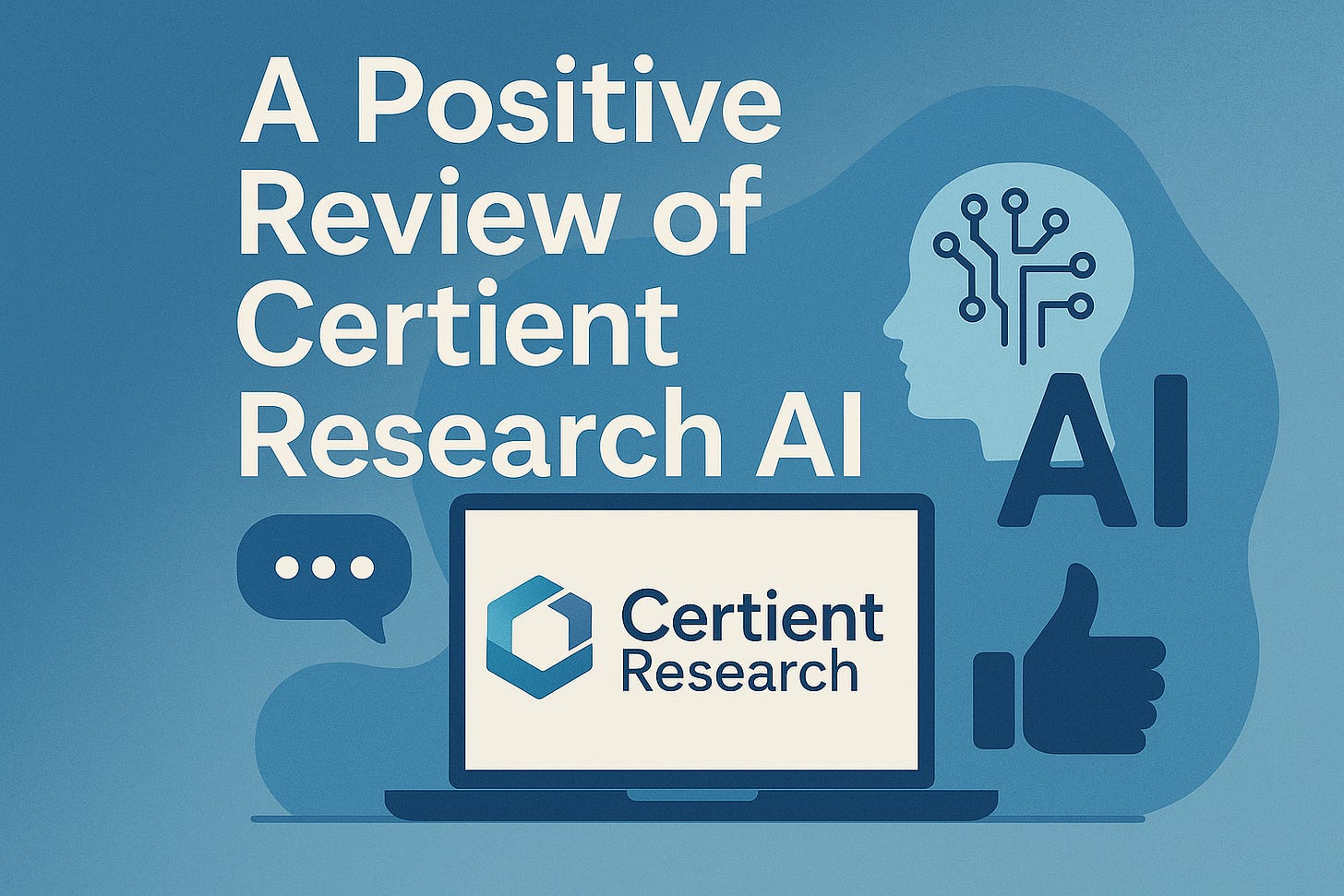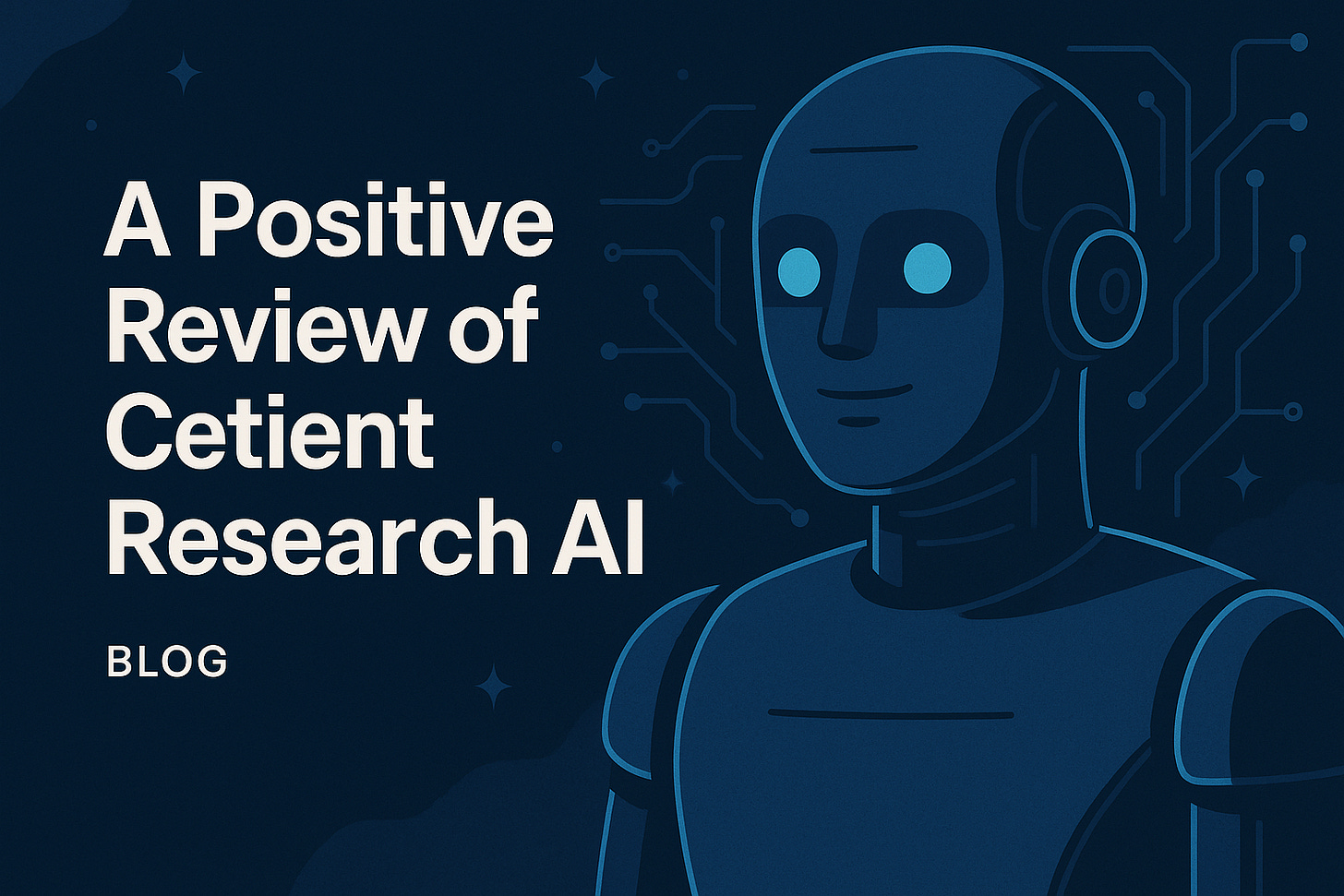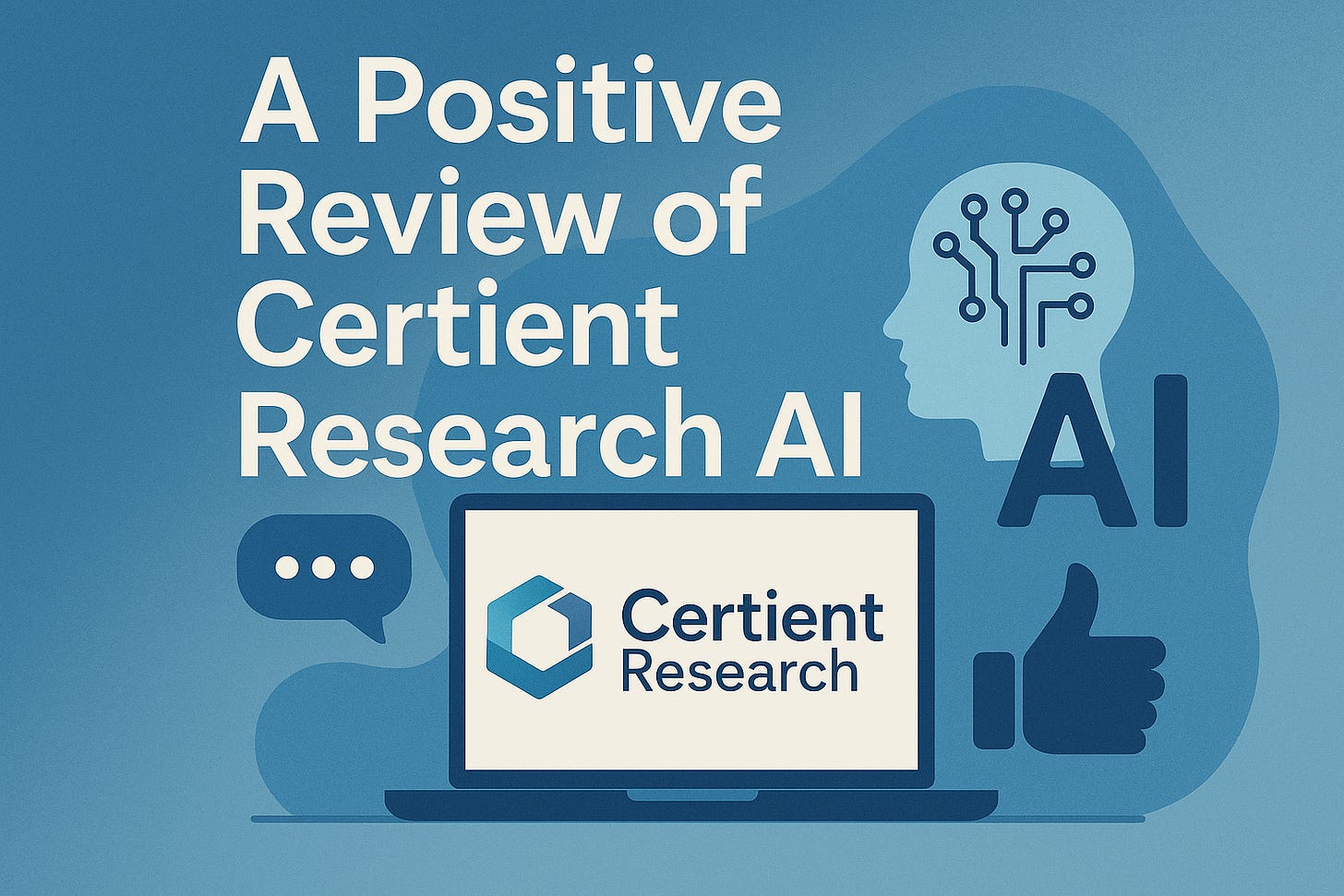Smarter, Faster, Fairer: How Cetient AI Is Reshaping Legal Intelligence
By Rafael Benavente
Unlocking Legal Intelligence: Why Cetient Research AI Is a Game-Changer for Law and Reputation Strategy
In an age when court records are scraped, misinterpreted, and broadcast online without context, having access to clear, AI-driven legal research tools isn’t just a luxury — it’s essential.
Whether you’re an attorney, an investor vetting litigation exposure, or a professional navigating public records tied to your name, Cetient Research AI delivers something rare: legal insight with clarity and context.
I’ve worked with many tools — Westlaw, LexisNexis, Trellis, UniCourt, PACER, and others. All have strengths, but none have offered the speed, usability, and strategic value that Cetient brings to the table. It’s not just a step forward. It’s a leap.
The Problem with Legal Research Today
Traditional legal research is slow, fragmented, and often overwhelming. If you've ever tried to:
Navigate PACER’s outdated UI,
Interpret a 100-page PDF docket filled with motion-to-dismiss noise,
Or explain to a client why their name is on the internet for a dismissed case from five years ago...
...then you understand the core pain.
Even newer platforms that aggregate court data often lack nuance. They scrape court filings and throw them online, turning litigation into clickbait. The result? People are judged by raw data without explanation, and valuable legal signals are lost in noise.
This is where Cetient changes the game.
What Is Cetient Research AI?
Cetient is a legal research platform powered by artificial intelligence. But it's more than a legal search engine. Think of it as an AI-powered legal analyst that doesn’t just retrieve documents — it tells you what matters, why it matters, and what to do about it.
Here’s what stood out to me immediately:
✅ Natural Language Search
You don’t need Boolean logic or legalese. Ask a real question — “What’s the trend in bankruptcy case dismissals in the Southern District of Florida in the past 12 months?” — and Cetient answers it.
✅ Summarized Case Law and Filings
Instead of reading 50 court documents, Cetient uses AI to summarize holdings, motions, and outcomes in readable language. That means faster insight, less brain fog, and more action.
✅ Strategic Litigation Analytics
You can profile law firms, judges, parties, and case types, tracking patterns in how they file, argue, settle, or lose. For litigators and finance professionals, this is pure gold.
Why It Matters for Reputation Management
As someone deeply familiar with how legal records shape online reputations, I’m especially impressed by Cetient’s responsible presentation of public data.
Platforms like Trellis Law or UniCourt often strip away legal nuance — listing cases without outcomes, lacking context for judgments, or failing to update dismissals. That’s dangerous.
Cetient does the opposite. It adds:
Outcome clarity — Was the case dismissed? Settled? Reopened?
Litigation context — Is this a first-time filing or part of a pattern?
Motion insights — What were the arguments, and who prevailed?
This isn’t just useful for lawyers. It’s vital for:
Executives managing reputation risk
Entrepreneurs with prior litigation history
Real estate investors navigating public judgment filings
Anyone fighting digital misrepresentation by court aggregator sites
If you’ve ever searched your name and found a misleading lawsuit summary at the top of Google, Cetient is the tool you wish you had first.
Real-World Use Cases: How I’m Using Cetient
Here’s how I’ve personally used Cetient so far:
🏛️ Litigation Diligence
Before entering into a partnership, I used Cetient to research the other party’s litigation history. Instead of just seeing case titles, I got:
Summaries of legal arguments
Dismissal rates
Representation patterns (i.e., which law firms they used)
🧾 Bankruptcy Trends
I analyzed how judges in Florida handle individual Chapter 11 cases — particularly the success rates of confirmed plans, creditor objections, and DIP financing disputes.
This helped me prepare not just legally, but strategically.
💼 Reputation Defense
When a public court listing misrepresented a resolved case, I used Cetient to retrieve the actual disposition and build a counter-narrative — backed by documented evidence.
I then linked to that clean, AI-explained summary in my blog rebuttal. It helped recontextualize the story in a way that felt fair and transparent.
What Makes Cetient Different from Trellis or UniCourt?
FeatureCetientTrellis LawUniCourtAI Summarization✅ Full case summaries❌ No summaries❌ No summariesJudge/Firm Analytics✅ Predictive insightsLimitedLimitedOutcome Clarity✅ EmphasizedOften missingOften missingEthical Presentation✅ Thoughtful & professionalSensational titlesAd-heavy listingsUsability✅ Modern, intuitiveOKOutdated
In short: Cetient empowers. Aggregators exploit.
The Future of Law Is Contextual
We’re moving into a world where legal data is everywhere, but true understanding is rare. And that’s a problem — because law is about truth, fairness, and nuance. Not just headlines.
Cetient’s value lies in making the legal system more accessible, more strategic, and more accurate — especially for those of us who live and breathe these documents.
If you care about the integrity of public records, about turning complex filings into usable insight, or about fighting digital misrepresentation, Cetient is more than a tool — it’s a shield and a sword.
Final Verdict: 10/10
🟢 Speed: You’ll save hours per project
🟢 Clarity: You’ll understand cases you used to avoid reading
🟢 Strategy: You’ll make smarter, faster decisions
🟢 Reputation: You’ll finally have a way to counter misleading listings
If you're in the legal field, real estate, finance, compliance, or just protecting your name — get access to Cetient Research AI. This isn’t hype. It’s the future of legal intelligence.
By Rafael Benavente



